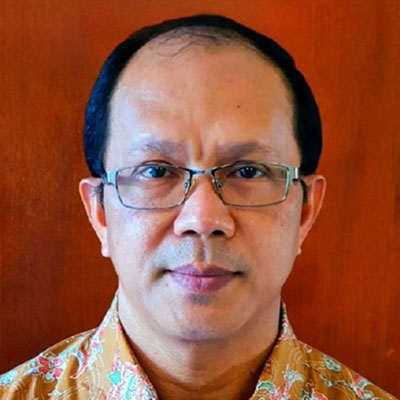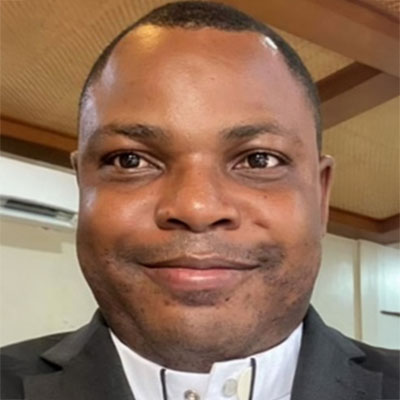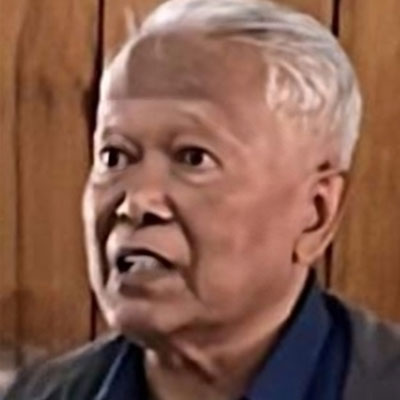 by Jozef Matton, cicm
by Jozef Matton, cicm
Community life is not a fourth vow in religious life. However, when we read an article about religious life, we often see the importance placed on community life. Of course, it is a necessary part of religious life. Indeed, hermits have chosen a life of solitude. However, almost all active religious congregations have chosen a community life. Our Congregation is no exception.
Our Documents
Our Constitutions contain articles on community life. For example, article 17 states, “by following Jesus as a community of brothers, we proclaim that God is the ultimate reality of our lives and keep alive among the people hope for the Kingdom and its justice.”
Article 23 clearly states that the support of a fraternal community enables us to accept in faith the loneliness which is part of all celibate living.
Article 51 states that “as much as the nature of our apostolate permits, we live together in community. By living in community, we strengthen the bonds of unity among us. A common life program increases the witnessing power of our word and work. Our communities are characterized by cordial hospitality.”
The 2011 CICM General Chapter strongly emphasizes the importance of community life:
“This Chapter places a strong emphasis on the understanding of our identity as religious missionaries. As CICM religious missionaries, ‘Our identity and our mission are connected at the community level.’ We live in international and multicultural communities whenever and wherever possible in order to bear witness to God’s Kingdom in a world marked by conflict between different races, cultures, and nations.
Community is not just for mission in CICM; it is mission. This Chapter recognizes that when community life flourishes, religious life is consolidated. We are excited to realize our mission as a corporate commitment when we are clear about our identity and own it” (Acts of the 14th CICM General Chapter, p. 10).
Community is mission: what a task, what a responsibility!
Several other CICM Documents state that as CICM religious missionaries, we place a high value on community life. This is not an insignificant detail. Although this aspect of community life has been discussed and even questioned several times in the history of our Congregation.
What I Saw and Heard
As a CICM, I have heard many comments and statements about community life over the years. Some have amazed and surprised me. For example, a few years ago, I heard a newly ordained priest say, “I would never live in a community!”
Another confrere expressed his regret that he had never been assigned to a parish alone.
Yet, these confreres lived in a community throughout their entire Initial Formation: novitiate, philosophy, theology, and parish internship. This community life can sometimes last more than ten years.
I have also known communities—if they can be called communities—where the confreres lived under the same roof but did not pray, eat, relax, or even talk together during the day. So, living under the same roof is different from living in a community.
Why this desire to live alone? It is as if living in a community is a threat to one’s privacy.
In several Provinces, the leaders have made an effort, in accordance with article 51 of our Constitutions, to ensure that confreres do not live alone in a parish. And I am pleased to note that new confreres arriving in a Province are assigned to strengthen or create a life team in a parish rather than to start a new insertion.
Confreres who live alone are connected to a reference community for various reasons. These confreres are invited to the community’s recollections or other activities. Some of them participate enthusiastically. This is the case in BNL, for example.
Msgr. Johan Bonny, the Bishop of Antwerp, Belgium, specifically asked for an international religious community when he asked for CICM missionaries in his diocese.
A Challenge
Indeed, community life is necessary for religious and missionary life. But we must admit that creating a healthy community is difficult. During research for writing this article, I came across the Jesuit Fathers of West Africa website. I read something there that I think is not only important for Jesuits but can also give us food for thought:
To live in a community, one must cultivate the capacity for fraternal attachment, listening, respect for others, sincerity and truthfulness in relationships, attentiveness, friendship, understanding, benevolence, and mercy in oneself.
One must be able to enter into a common prayer with one’s brother, share life and apostolate, reflect, research, and discern for the benefit of all. To do this, one must silence egocentrism, individualism, or the desire to isolate oneself; one must also overcome partisanship or narrow-mindedness. . .
In short, the community dimension of our mission cannot be acquired once and for all but must be constantly renewed and strengthened.
It is obvious that living in a community far from being given is a daily challenge.
However, the use of certain means of communication is not always beneficial to community life. Therefore, let us be careful that our smartphones, tablets, computers, etc., do not replace our confreres.
At the same time, let’s be aware that we are called to mobility and, therefore, will never be members of the same community for our entire lives.
Opportunities
We all need a supportive community! In his encyclical letter, Fratelli Tutti, Pope Francis writes explicitly:
“No one can face life in isolation. . . We need a community that supports and helps us, in which we can help one another to keep looking ahead. How important it is to dream together. . . By ourselves, we risk seeing mirages, things that are not there. Dreams, on the other hand, are built together” (# 8).
A solid fraternal life in a community also helps us live and remain faithful to the religious commitments we made on the day of our first profession. Undoubtedly, a good community can serve as a beneficial social control.
Experience and Commitment
We all have something in common. We have all lived in a community for at least a few years. Therefore, all of us have a history of good or bad experiences living in a community. Everyone has at least some idea of what can be positive in building a good community life and what can be an obstacle or even what can destroy it.
And we all know that good community life requires a commitment from community leaders (who bear a great deal of responsibility in this regard) and from each community member. Commitment begins primarily with oneself. We should not expect too much from others. It is both a personal and a corporate commitment.
Making time for each other, praying together, eating together, and relaxing together can all contribute to making our community life more than just living under the same roof.
Finally, as I finish my term as General Councilor in June 2023, this is the last article I will publish in the “For Our Reflection” section. I am not a writer. My “writing” grades in elementary and high school were pitiful. It’s never been one of my strengths. Thank you to everyone who helped me proofread and translate my articles. I want to thank everyone who sent me comments on my articles, which I greatly appreciated. Good luck to you all.











